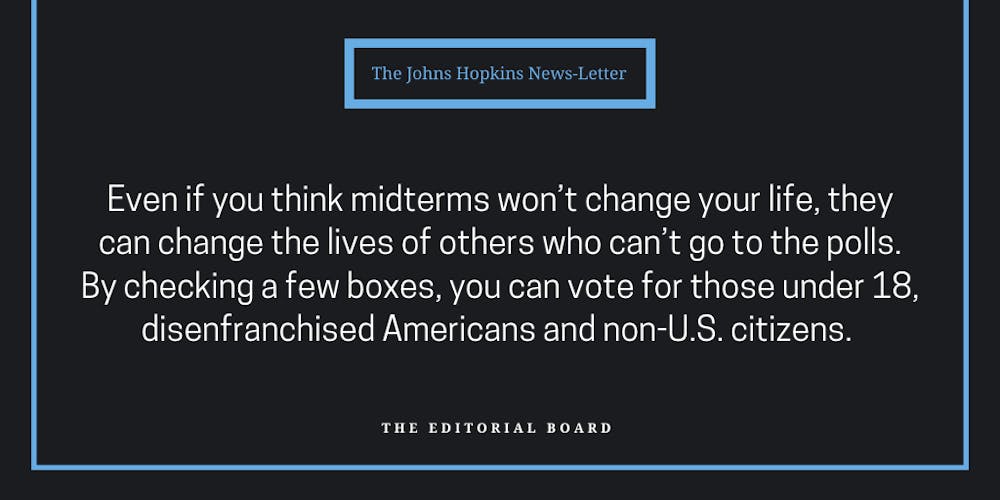As midterm elections near, it seems that many young voters have become disillusioned with the political sphere. For many of us, it’s been a while since we were our 18-year-old selves, all registered and geared up to vote.
So, what happened to us? It can be hard to pinpoint. One possibility is that our representatives are simply not our age and are only getting older. Consequently, politicians can seem out of touch and may not prioritize the same issues we do. Though we’re still seeing high voter turnout among young adults, they increasingly believe that their vote “doesn’t make a difference.”
Though young voters may be losing faith in politics, recent headlines have proven that our political participation matters. Voters aged 18 to 29 years old were vital to President Joe Biden’s win in November 2020. In August, the president announced his student loan debt relief plan. The plan has the potential to dramatically change the lives of college students past and present, demonstrating that student involvement in our democracy has real power.
Many may consider midterm elections to be less important, with voter turnout 20% lower than during presidential elections. Local politics might seem low stakes, especially for those who are away at college — but that’s far from the truth. State and municipal governments can determine how national issues impact local communities.
The Supreme Court’s overturn of Roe v. Wade in June gave states authority over abortion laws. This year’s midterm elections could decide the fate of abortion rights in at least seven states. This issue is particularly relevant to young voters — in 2019, women aged 20 to 24 had the highest abortion rate.
Another important issue on the ballot this November is education. While Democrats back measures such as increased salaries for teachers and more student mental health resources, Republicans are pushing for school choice and parental rights.
In January, Texas Gov. Greg Abbott proposed a Parental Bill of Rights that would give parents greater power over school curricula. Abbott also boasted that Texas had the “toughest” laws against critical race theory in public schools. In March, Florida Gov. Ron Desantis signed a bill, widely known as “Don’t Say Gay,” preventing public school instructors from teaching students about sexual orientation or gender identity. Both governors’ seats are up for election next month.
Voting in midterms isn’t just about the issues — it’s also about representation. This midterm cycle, the first Gen Z candidates are running for Congress. Currently, Baby Boomers make up over half of Congress. These elections mark an important shift for current college students’ civic engagement, as we now have the opportunity to elect candidates who represent the priorities and experiences of our generation.
Voting can be daunting, particularly at college. If you can, get an absentee ballot. If you’re registered to vote in Maryland, locate your polling place and make arrangements for transportation. Stay up-to-date on the issues by reading the news and researching candidates’ platforms. There are also opportunities to get involved on campus, including guest speaker events and organizations like Hopkins Votes.
Even if you think midterms won’t change your life, they can change the lives of others who can’t go to the polls. By checking a few boxes, you can vote for those under 18, disenfranchised Americans and non-U.S. citizens. And, most importantly, you get a free sticker.





